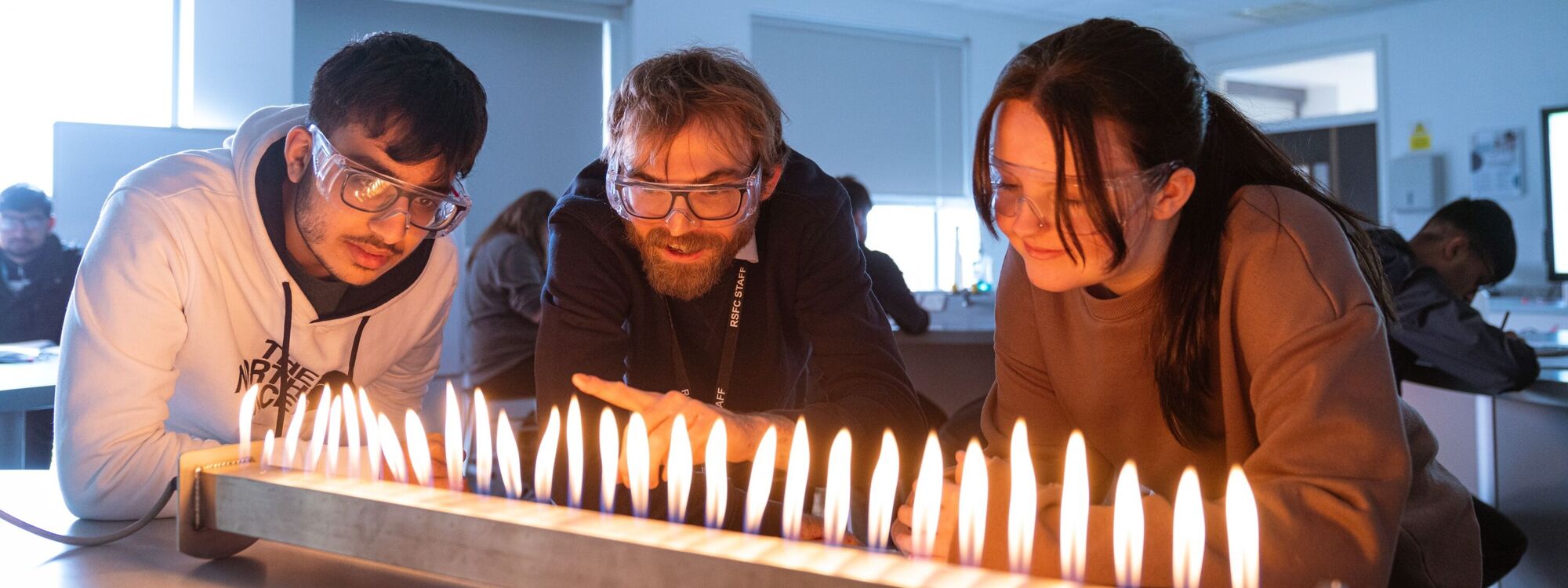Physics is about questioning how the world around us works and looking for answers through a combination of experiments and theoretical work. Physics is used to answer some of our most fundamental questions relating to our origins and existence. It is a mathematical course, using formulae and logic to solve problems, predict events and describe observable phenomenon.
Entry requirements
In addition, a grade 6-6 or above is required in GCSE Combined Science or grade 6 in two separate sciences, along with a grade 6 in GCSE Mathematics and a grade 4 in English Language. Physics students must also study A level Mathematics. In order to study two or more science subjects you will need to achieve at least 7-6 in Combined Science or at least one 7 if studying three separate sciences at GCSE.
Why study this course?
Physics enables you to apply models and formulae to understand the key concepts behind everyday things. For example, building structures such as bridges, looking at the electronic components used within modern technology, how subatomic particles interact with each other and the fundamental forces of the universe that act as the building blocks of life.
What can you expect from A level Physics?
You will challenge your ability to use logic and mathematics to solve problems and develop new ideas, and there are many opportunities to fine-tune your practical skills throughout the course. You will learn new terms and theories to support your development, and benefit from external exposure to subject experts and trips that will enhance your understanding.
KEY TOPICS - YEAR 1
• Mechanics
• Materials
• Waves
• Basic electricity
• Quantum phenomena and particle theory
KEY TOPICS - YEAR 2
• Circular motion
• Simple harmonic motion
• Gravitational, electric and magnetic fields
• Capacitance
• Thermal physics
• Nuclear physics
• Astrophysics
What can I do with a qualification in Physics?
An A level in Physics is a valuable one and can lead to university degrees in Physics, Mathematics, Engineering, Geography and Medical Science. It shows a high level of numeracy, logic and reasoning, and is desirable for universities and employers. Physics can lead to careers not just in science but in other industries for example, visual effects for films, modelling the economy, journalism and many more.
How is this course assessed?
You will complete three examinations at the end of the two-year course and be assessed throughout the year on your practical skills.
Who is this course for?
There is a lot of new terminology to learn, so independent study skills and a good level of motivation are vital. If you enjoy Mathematics and Physics at GCSE and like to see a real-world application of your skills, Physics is the subject for you.


